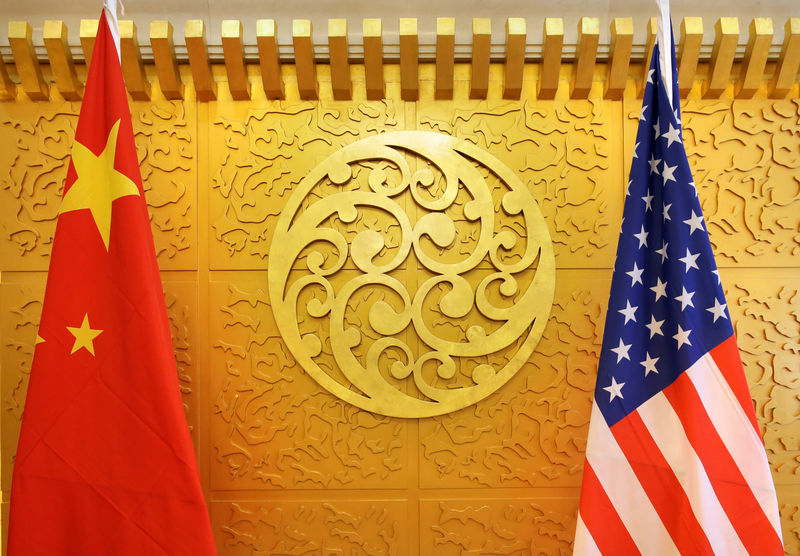By Geoffrey Smith
Investing.com -- It’s four and a half years since the Euro Stoxx 600 index hit its all-time high of 415.81. In that time, the U.S. S&P 500 has risen over 50%, despite the ups and downs of the trade war with China. The Stoxx 600 has largely missed out on the rallies but always participated wholeheartedly in the sell-offs.
Even now, those waiting for a new all-time high are probably going to have to wait at least until the weekend.
Europe’s benchmark index closed within 1% of a new ATH on Wednesday but slipped 0.2% to 408.92 by 5:30 AM ET (1030 GMT) on Thursday, after the latest twist in U.S.-China relations that once again underlined how much in thrall European markets are to developments outside their control.
Trump signed into law the Hong Kong Human Rights and Democracy Act on Wednesday at a moment when the U.S. public’s attention was firmly on the approaching Thanksgiving holiday. However, it didn’t escape Beijing’s attention, and the Chinese government renewed their condemnation of a bill that uses the threat of trade measures to ensure Beijing upholds the political autonomy of Hong Kong.
Beijing also promised countermeasures of its own, but took no immediate action, nor did it give it any details of what it is considering.
This week’s data have suggested that the U.S. is coping with the strain of the trade war better than China: durable goods orders, jobless claims and a revised estimate for third-quarter GDP were all stronger than expected on Wednesday, while China reported that industrial profits fell 9.9% on the year – the sharpest decline since it started compiling that data series in 2011. The overall picture masked an even steeper decline at trade-sensitive sectors such as textiles and chemicals.
Deutsche Bank (DE:DBKGn) strategist Ulrich Stephan said Wednesday’s rise in bond yields and cyclical stocks was “a development that can quite easily continue.”
By 1120 GMT, all of Europe’s major markets were down. The midcap FTSE 250 stood out with a 0.2% gain after an opinion poll predicting a healthy majority for the Conservative Party at next month’s election lifted the index’s mainly domestic-focused stocks. Among the FTSE 100, asset managers St. James’s Place (LON:SJP) and Hargreaves Lansdown (LON:HRGV) led gains, anticipating a big increase in U.K. investor confidence next year.
The FTSE 100’s international earners suffered due to the accompanying rise in sterling. Worst hit of all was Vodafone (LON:VOD), after the Indian Supreme Court ruled it must pay $3.9 billion more in network fees to the government. The ruling will make it hard both for Vodafone and its competitors to survive in India without government relief.
